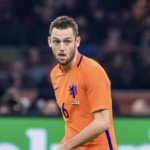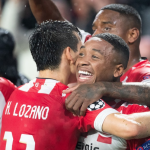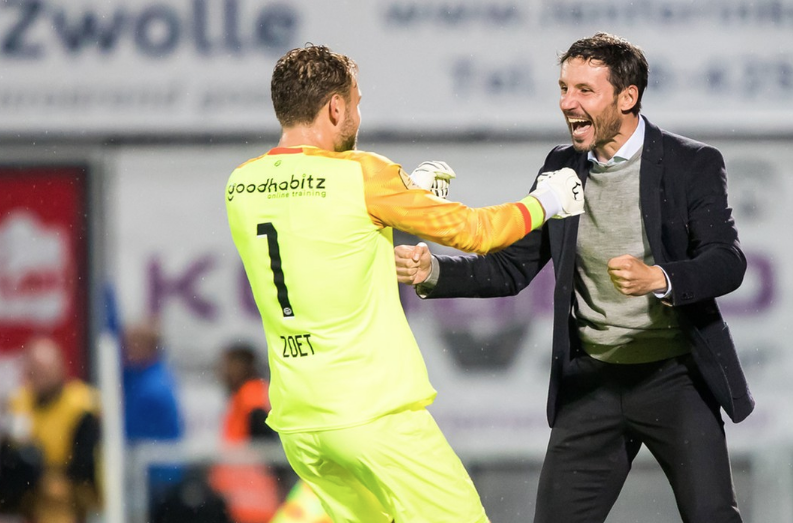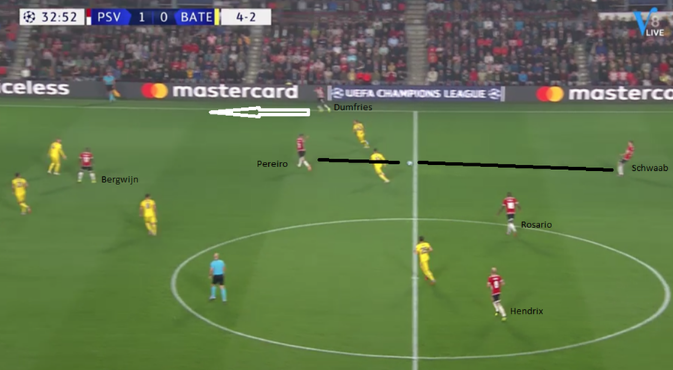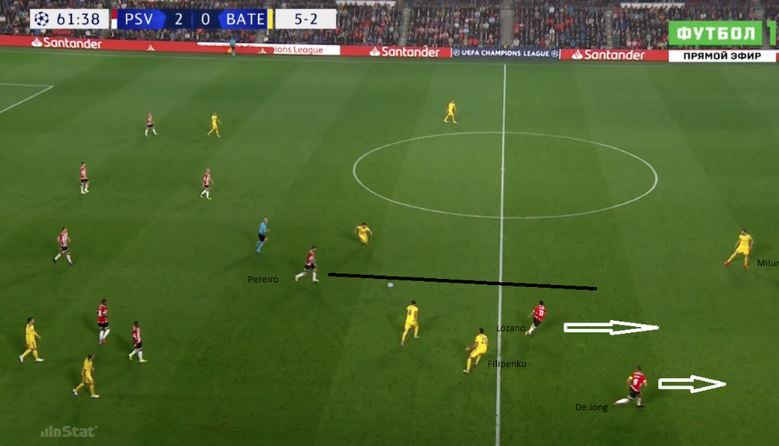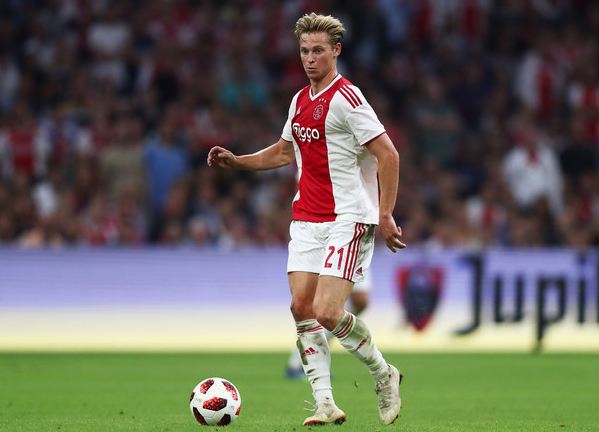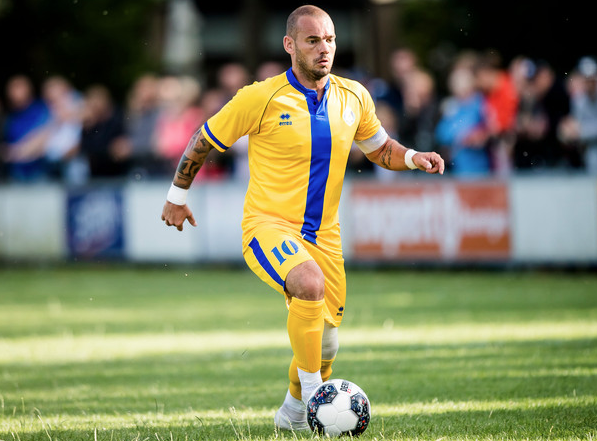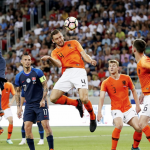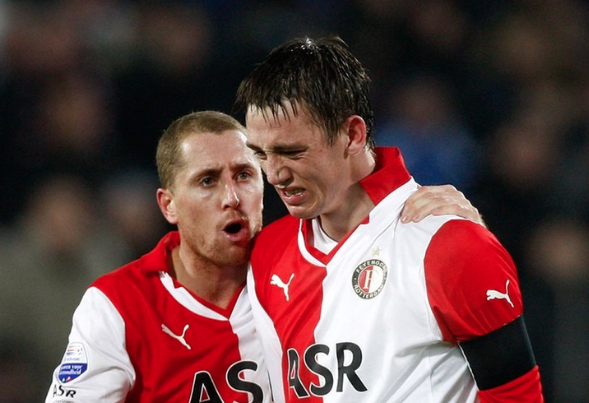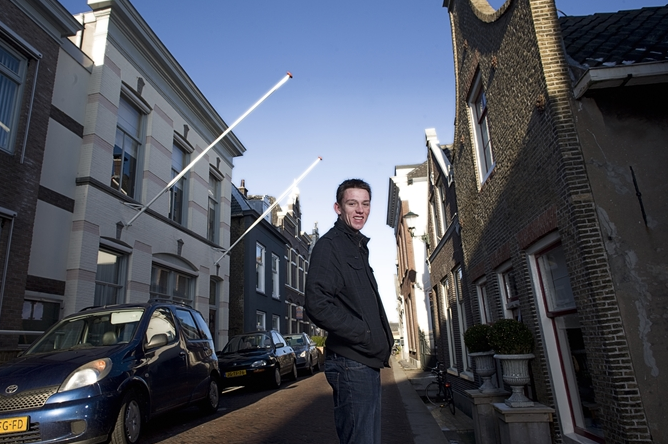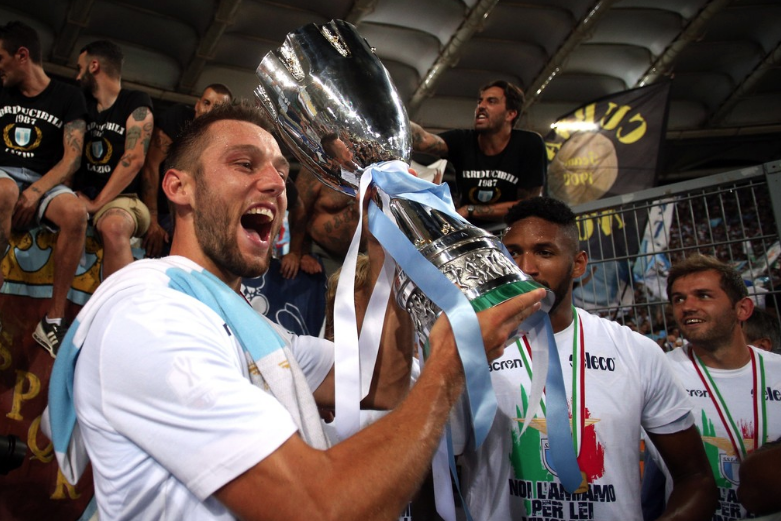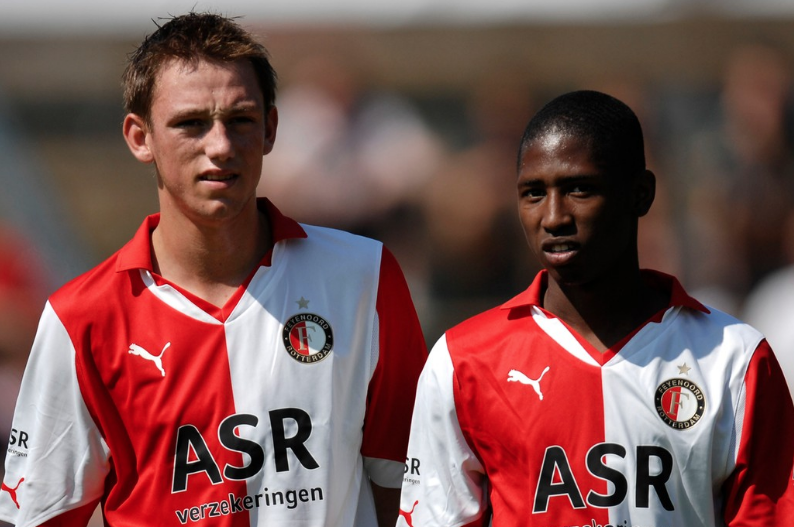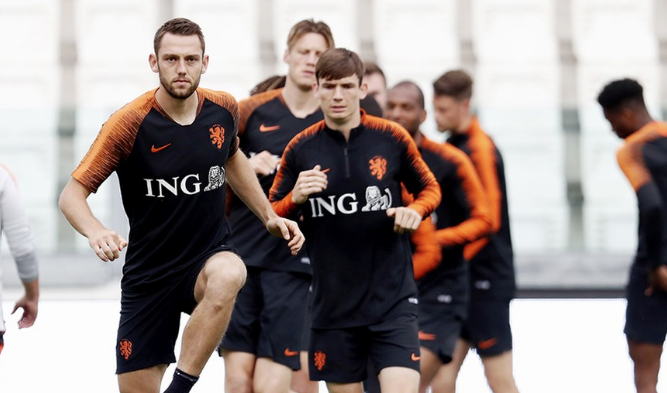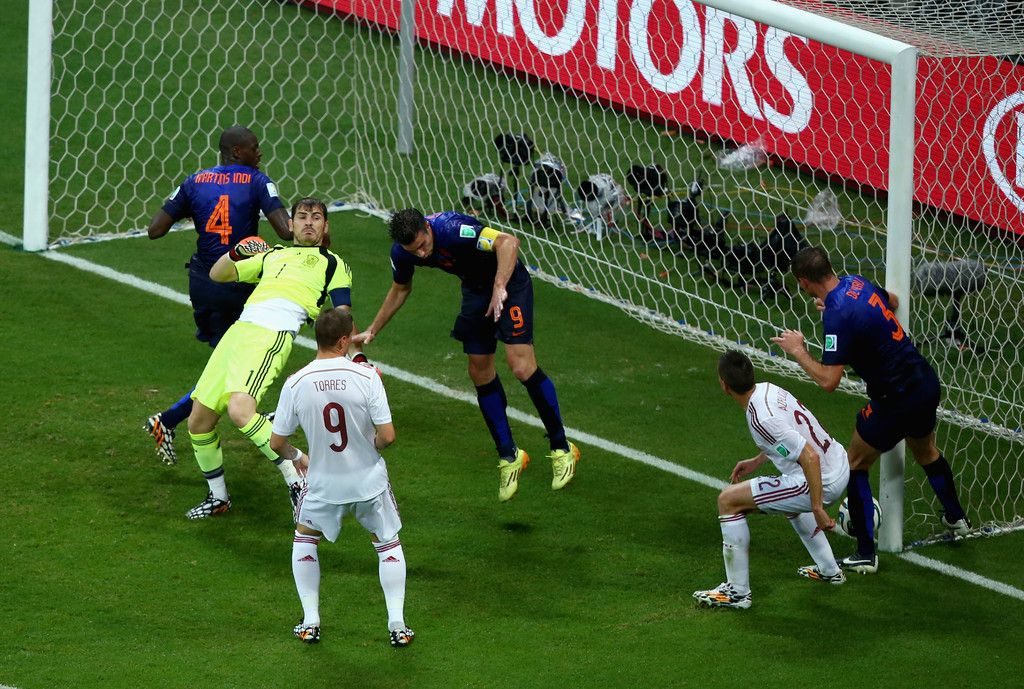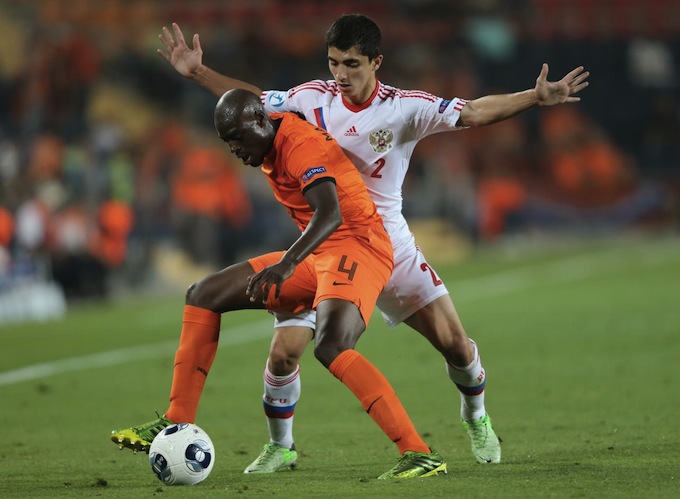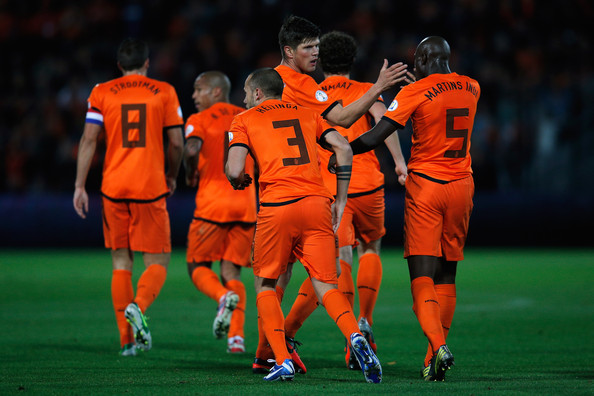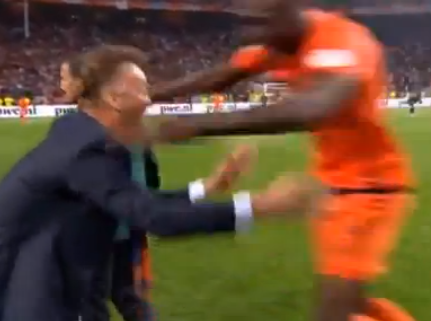Il Miglior difensore della Serie A
Not Bonucci, Chiellini, De Ligt or even Koullibali… It’s Stefan de Vrij who wears that title proudly: best defender of the Serie A. A kid from Holland. Mr Masterclass. An interview.
What is that badge on your jersey?
“It’s the emblem stating I am the best defender in the Serie A. The best player Paulo Dybala, the top scorer Immobile, the best keeper Szczesny and best midfielder Alejandro Gomez also have one on their jerseys.”
So who determines who is the best?
“The Lega Serie A, basically. Based on your stats and performances. It’s a great honour and testament to the level I have reached.”
You are the best in Serie A. We have Virgil, the best in the Premier League. Mathijs de Ligt is becoming a solid force at Juve. What happened to a country which traditionally is known for top forwards?
“And don’t forget Nathan Ake, and his move to City. We did have top notch defenders in the past. People here still remember Ruud Krol and Michel van de Korput. And with players like Jaap Stam and Frank de Boer, the people in Italy don’t think we lack good defenders. But through the years, I do believe we value defenders more in Holland, now.”
You have been powering for six years now?
“Yes I have been Italianised, and not just as a player. I just adore this country, the culture, the history, the people, the food… And the way how calcio is lived. Striker are saints in this country, like anywhere, but a controlling midfielder like Marten de Roon or a central defender like me will also receive a lot of respect.”
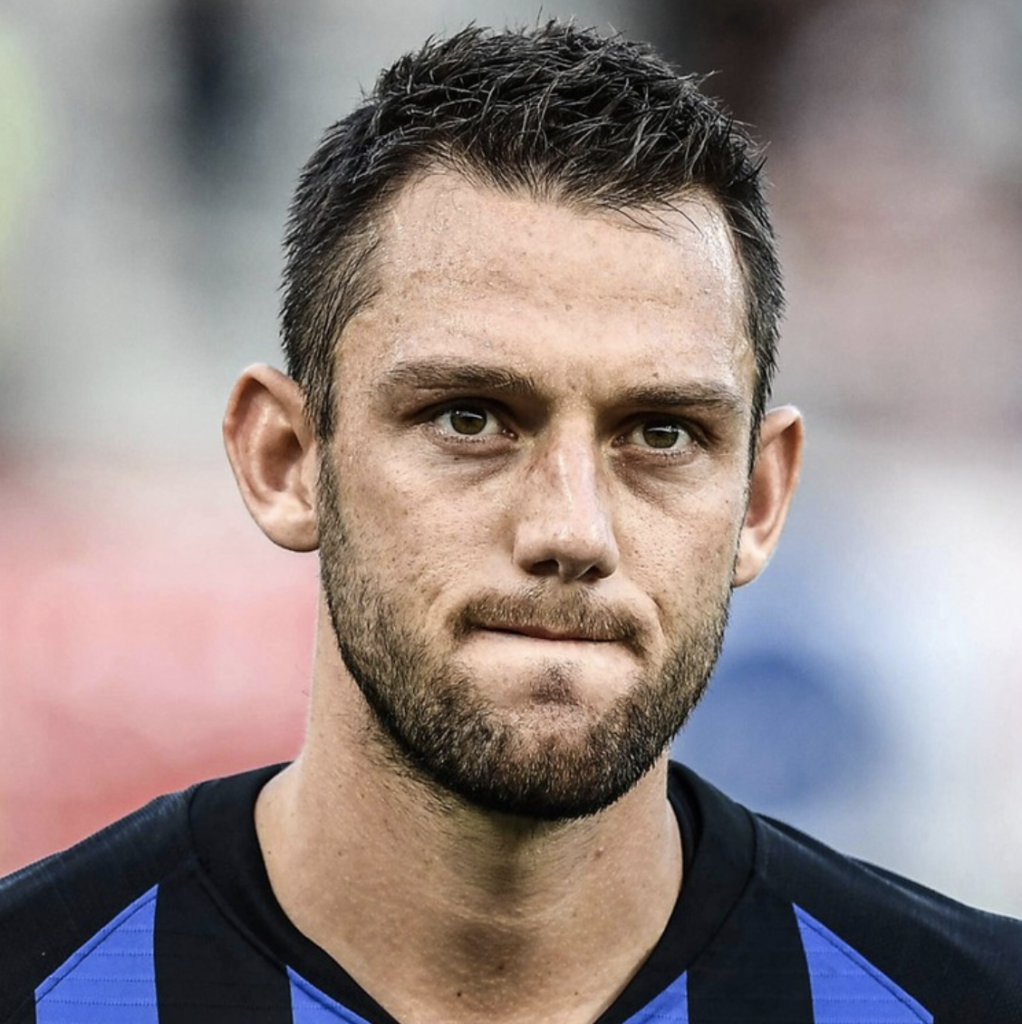
You started at Lazio. What did the coaches back then tried to do with you when you arrived?
“I didn’t need to unlearn things, or something. But the coaches did think it was very odd that I didn’t know certain defensive principles. In Italy, we always talk about two situations: palla libre (the free ball) and palla coperta, which literally means “the covered ball”. Italian defenders know exactly what to do in what situation. “Don’t you know these principles?” they’d ask me, and I was….”Well, yes, but we never did any practices with that.””
What is the difference?
“Ok, the ball is the starting point. Is the ball free (palla libre) to play forward? If yes, how do you position? Are you fit and ready to block the deep ball. How do you position vis a vis the other defenders? And when the ball is with the opponent? Palla coperta. We want to push up to keep the lines compact. Where do we pressure, how do we pressure and when do we start it? Do we press in every zone? Which zone do we start the press? When do we drop, when do push up? It’s always a combi of: 1. the ball and 2. the position of my team mates and 3. the space we need to defend vs defending vs an individual opponent.
You saw Holland – Italy, the match under Lodeweges which we lost? I was injured at home and watching the game and there was this recognisable moment. I think it was Memphis on the ball in a 3 versus 2 situation. Memphis was waiting, hoping for one of the defenders to step in, so he could pass to a free man or take the player on. But both Bonucci and Chiellini didn’t bite. They didn’t step in, but dropped back, both of them. They protected the space, the centre of the field and their goal, basically. They forced Memphis to play wide. That is ok. You can’t score from there, is there thinking. And Memphis was also allowed to shoot at goal. A low percentage effort, as they rely on their goalie to stop that shot. Doing it like this, the midfielders had time to come back in position and help out. So what do they defend? Not Memphis. But the ball and the space. It’s like calculating the odds. Where is the risk to concede highest? Indeed, straight in front of the goal, alone in front of the goalie. Everything else is hard. The centre of the pitch is sacred in Italy and you hardly see Italian defenders push up. The central defenders will stay where they are. The full backs have to fend for themselves, just like the goalie. But they will go for: ball, position, space, opponent… In that order.”
How do you train this?
“It’s different here. In Italy we train on pressuring and defending with an orientation on ball and man. In Holland we used to train on positioning and basic techniques. The pass, the first touch, playing onto the right foot, the proper weight on the ball, etc. Not tactical, but more technical. And initially a lot of physical stuff, without the ball. That is tough, we would go into the mountains, but that is where your foundation is laid and you really reap the benefits later. That isn’t even that tough, it’s the tactical sessions that are tough. And every coach I worked with, from Pioli to Spalletti to Conte now at Inter: they put their whole soul into it. We spent hours on hours on tactics. We spent hours on the pitch in a 10 v 10 match. The opponent has the ball and we train where and when to pressure. Constantly in different zones, constantly repeating and focusing on the distances between players. What do the midfielders do when the forwards start the press. How do we as defenders position ourselves. And then suddenly, Conte throws a second ball into the mix, just when we move forward to attack. If we did the job well, we are ready for that situation and deal with it. If not, it’s a goal for the opponent.”
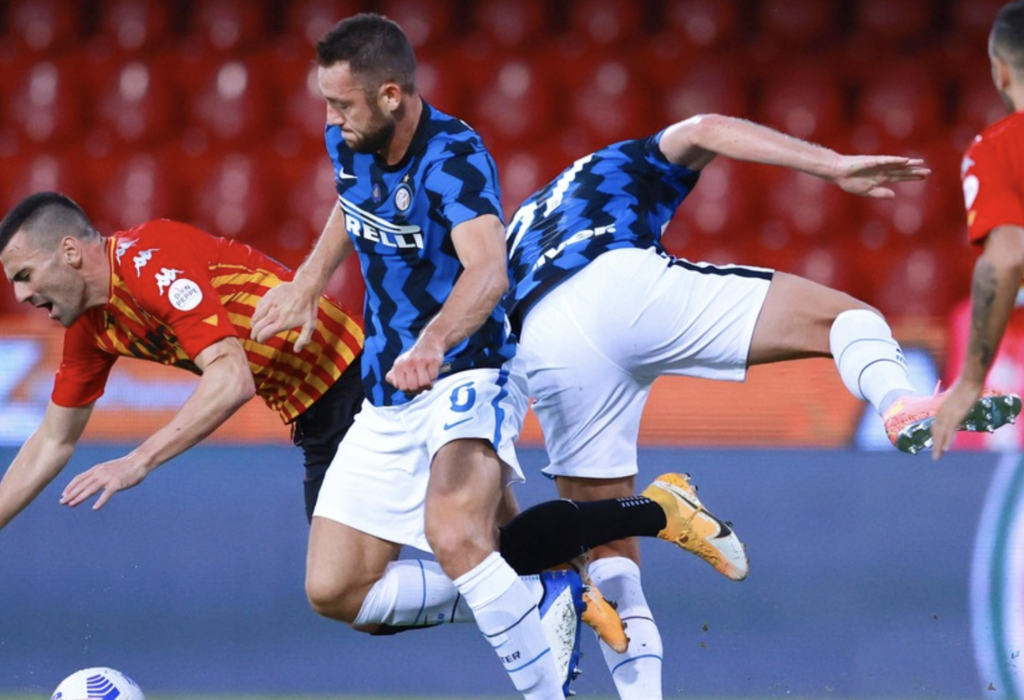
And in Italy, training isn’t just on the pitch, correct?
“Indeed. We spend hours in tactical sessions as well, with video. And not just match footage. We tape all the practice sessions as well. Conte is a coach who is completely immersed in this. Our way of playing is super attacking, with 3 defenders and 4 midfielders. And we press early. When we attack, a lot of responsibility is with us, defenders. The only thing that counts, is the rest defence. We train on this till the cows come home. We press high and we press a lot, so when we lose possession we usually are with limited players behind the ball. Out task is to make sure we are not countered to smithereens.”
I sometimes miss attacking actions, because I am constantly looking around me, behind me, checking distances, etc. Those video images are a great help for me. Practice is repeating situations that you could get into on the match day. It’s repeating, repeating etc so you become naturally ready for that situation. I remember Federer hitting a crazy shot in a tennis match and when asked about it, he said: I played this shot in training 1000s of times. And that is what it is about.”
Inter played vs Fiorentina recently without you due to injury, and won 4-3. A spectacular win. And three points!
“Yes but here we say: three goals conceded at home: that is not good enough! And we were leading all the way, we were 3-2 up and still gave away a chance. That can cost you the title, or a Champions League spot!”
Antonio Conte. When we mentioned his name to your old team mate Graziano Pelle he puffed his cheeks out….
“Yes, he played under him in the NT, didn’t he? Yes it is hard work under Conte. In Italy, football is a profession. we train twice on a day and in between we have talks and video analysis. Individual, as a team or as a line. And nothing escapes him! I am working from 9 in the morning sometimes till the evening with football and Inter, but it’s fine. I love it. I do like to think about the game and this coach forces you to. He demands a lot but he gives a lot too. All Conte’s team are successful. It’s not a coincidence. I spoke about it with Lukaku recently. During Euro 2016, Belgium had the best squad in terms of quality. But they were played off the pitch by Italy. The Belgians had no response to Conte’s tactics. Romelu said “”I knew he must be a good coach, after that game.” We both know this for sure now.”
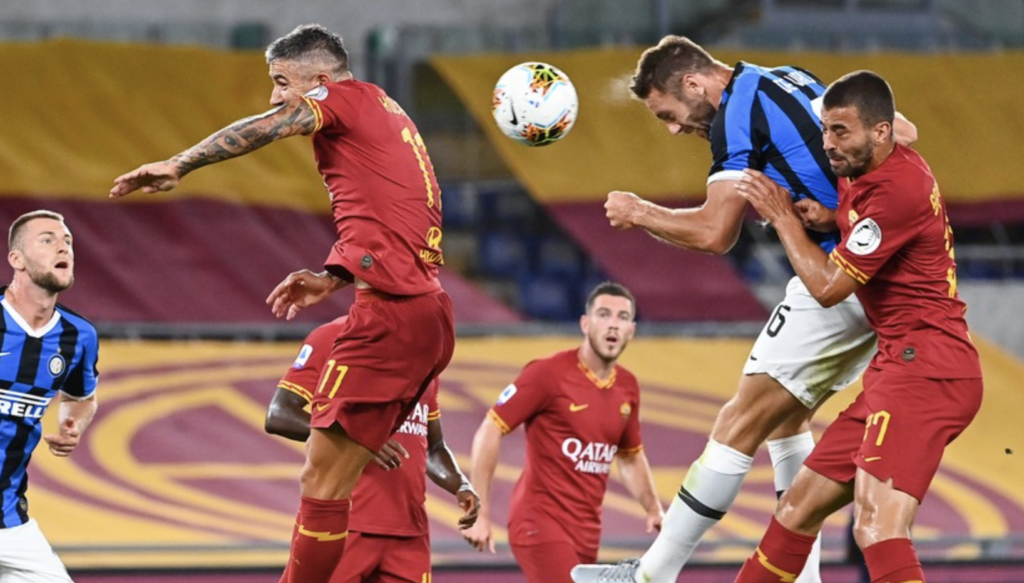
Defending is always seen as tactical, but is it also technical?
“For sure. The technique of body positioning for instance. In Italy, defending means: a pro-active stance. Always on the front foot. A bit bent forward. Ready to sprint, or jump. A defender who stands straight up, is a dead defender because you’re always too late. That too is training training training. And working in the gym to gain strength and to practice your body posture.”
So it’s not about the pass, the sliding, the header, that kind of technique?
“Sure, those are key too but you are expected to have perfected that when you come to Inter. We also analyse the opponent and when they have a typical strong header of the ball, like Luuk de Jong, we know what are options are. We then focus on avoiding having to go head to head. By making sure the cross won’t come in. And it’s not always about the duel. Sometimes it’s about the organisation around a striker, so that when he does head the ball, we are ready to grab the second ball. Or I can use my body to make it hard for him to head it. I hardly use slidings these days. I try to stay on my feet. Do you remember the penalty we conceded vs Spain at the World Cup 2014. I started my sliding with one leg, giving Diego Costa the opportunity to hit my trailing leg and go down. In Italy, you make a sliding with two legs, so you won’t give the attacker a chance to surprise you, like Costa did. We constantly discuss what the best way is to stop a certain attacker. They are getting smarter and fasten and better and we need to do the same.”
How tough is it mentally?
“That is half the job. The physical aspect is tough, but the mental aspect too: focus, concentration and discipline. Every single day. And that takes up energy as well, you are constantly analysing, processing and thinking. In Italy, every practice has a meaning, it has a place in the process of a team. Everything we do fits together like a symphony, you know? There is an idea behind it. I love that approach. It’s not for nothing that I fit really well into the Italian style of playing and I became a complete and better defender here.”

It could have been Bart Schenkeveld here at Inter?
“Haha, who knows… Yes, we were three youth players and Mario Been needed a couple of extra players for a training session in Turkey. He needed a right back. Bandjar got injured and the coach picked me over Bart. That is a bit of luck. I then demonstrated to Been I was ready for it, and the rest is history. I always lived for the sports, even in the Feyenoord youth when people doubted my potential. I always worked my ass off.”
Back in the Feyenoord days, youth coach Cor Adriaanse once said: “Stefan needs to focus on right back, because he isn’t ruthless enough for central defender.”
“But I know what he meant and I have progressed since, of course, but yes, I’m not an assassin and never will be. I am not a dirty defender. And this is why that title of Best Defender of Italy is so amazing for me. I did it all my way, and this prize is really an amazing confirmation of what I have done throughout my career.”

